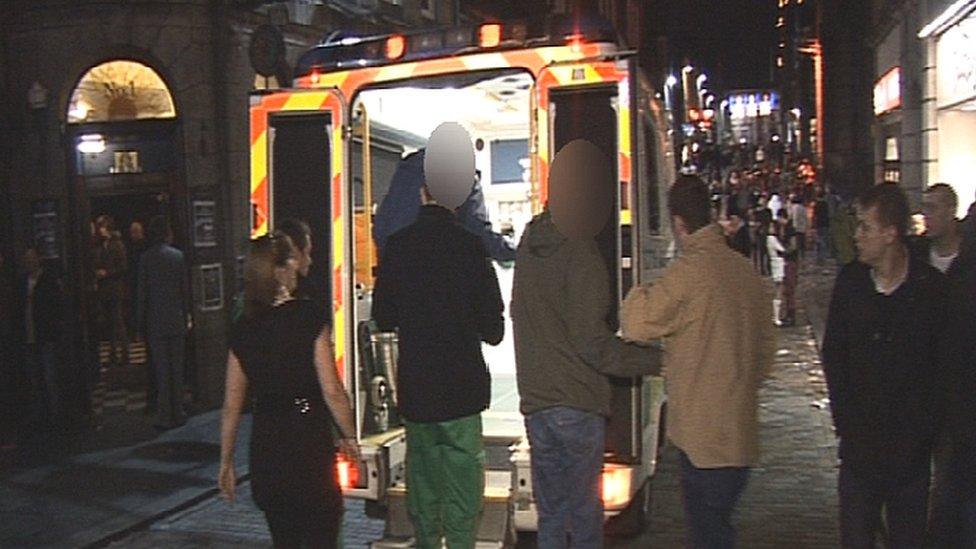Ambulance 999 abuse: Government urged to tackle offensive callers
- Published
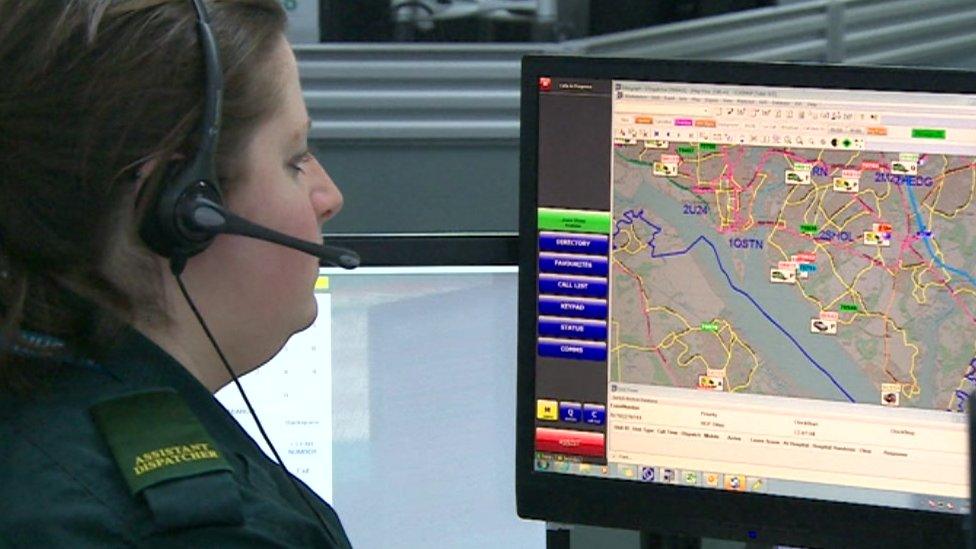
Call handlers in ambulance control rooms received hundreds of abusive calls over a three year period
Calls have been made for harsher penalties to protect ambulance control room workers from abusive callers.
Figures obtained by the BBC under Freedom of Information laws revealed hundreds of verbal attacks in the past three years including threats to kill, racist and sexual slurs.
The union Unison has urged the government to bring in tougher punishments to deter abusive callers.
The Home Office said sufficient laws were already in place.
999 call verbal abuse 'must stop'
The BBC asked all 10 ambulance trusts in England, the Welsh Ambulance Service, Northern Ireland Ambulance Service and the Scottish Ambulance Service about abusive calls recorded in the years 2016-15, 2015-14, 2014-13.
West Midlands Ambulance recorded 1,924 instances when a caller was abusive, including six cases where a report was completed due to a "significant threat or concern".
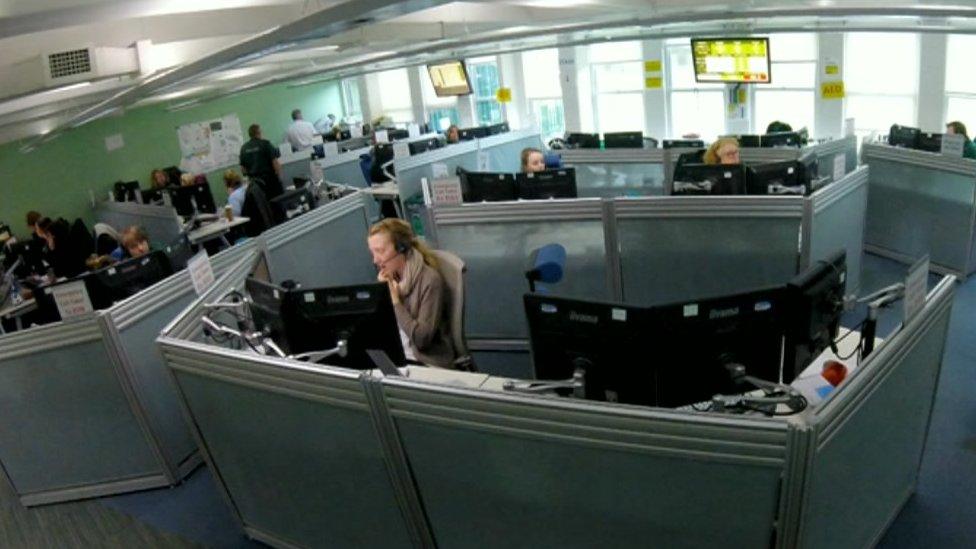
One South Central Ambulance operative was accused of making the caller pregnant
In examples recorded by other ambulance trusts:
A call handler for South Central Ambulance was left "visibly shaken" after suffering racial abuse while another was on the receiving end of sexually explicit comments
South East Coast Ambulance Service NHS Foundation Trust confirmed threats to kill, threats of violence and sexually inappropriate comments had been made to its staff
Threats to kill were also made against a North West Ambulance Service call operator
An abusive caller threatened to cut a North East Ambulance Service call handler's throat
A woman told London Ambulance Service she had a problem with foreigners taking over jobs, criticised the operator's accent and accused them of not being able to understand English
An East of England caller told an operator "you're not helping us because you're black"
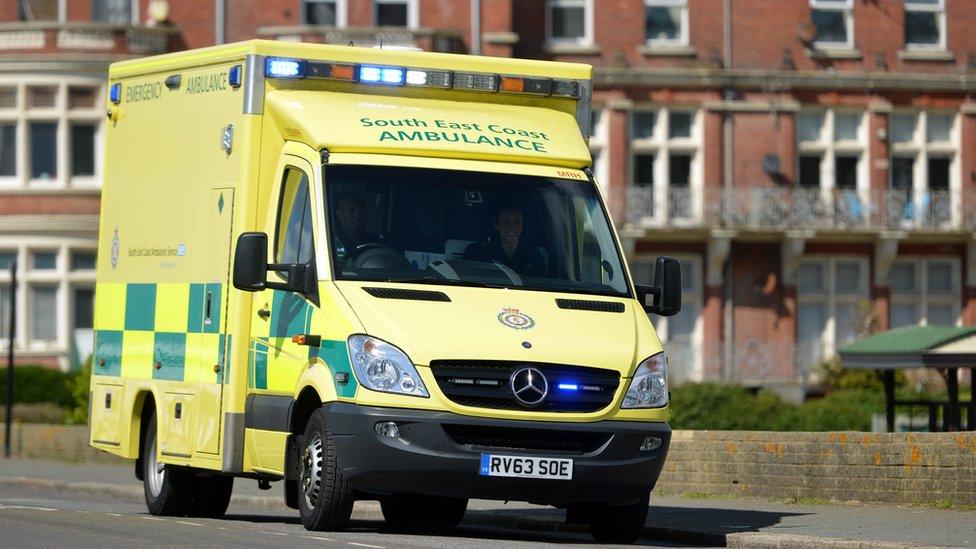
Secamb staff were heard to be "tired and exhausted"
Although there is no specific law to prevent people abusing ambulance control room staff, offenders can be prosecuted under the broader Communications Act 2003 and the Protection from Harassment Act 1997.
Both carry a maximum sentence of six months.
But Unison said it would welcome harsher sentences to deter offenders and more requirements on employers to report incidents.
It also wants better support for abused staff and improved support for employers to secure prosecutions.
Unison's head of health Christina McAnea said it was "high time the government took the problem more seriously".
"Ambulance staff spend their working days helping the public and trying to save lives, but while most people are grateful and appreciate the difficult jobs they do, there's a minority who think it's fine to abuse and harass them to a shocking degree," she said.
"Ambulance trusts must make it clear they will show no mercy to offenders and prosecute anyone who intimidates, threatens or abuses their staff."
West Midlands Ambulance Service backed the call for harsher sentences against people who abuse call handlers.
"It's extremely disappointing that our staff are subject to verbal abuse when all they are trying to do is help members of the public with medical emergencies," said Steve Elliker, the trust's general head of security and safety.
"Where there is a threat of violence to the individual call handler we work with the police to bring the full weight of the law on that individual."
A spokesman for the Home Office said: "Emergency call handlers must be treated with respect and civility as they perform their vital role protecting and supporting members of the public in difficulty.
"The police have powers under the Communications Act 2003 and the Protection from Harassment Act 1997 that they can use to investigate and charge those who harass call handlers over the phone when reports of this despicable behaviour are made."
- Published22 July 2014

- Published17 June 2015
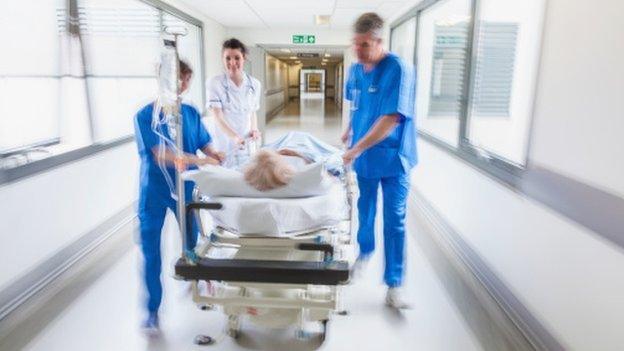
- Published24 August 2016
